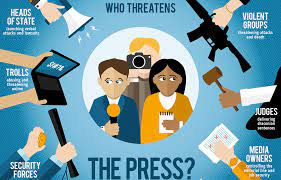It’s hard to fact-check content in real-time.
Reporting the truth is challenging because things are moving so quickly, often content is shared on the social media platforms such as Facebook that the journalist is unsure about in terms of being factual or telling the complete story. The example I used was the Kobe Bryant helicopter crash (Wacc, February 2019). While TMZ reported the story first, many of the facts were inaccurate. This also posed an ethical challenge in terms of informing family members of death prior to publication which has been a common practice in journalism. Social media is at the root of the inaccuracy of stories based on the pressure it puts on journalists.
Speaking of TMZ, this is the media outlet.
I have selected to analyze. TMZ is considered one of the top celebrity news publishers and a pioneer in digital news distribution. For more than a decade, TMZ has been able to adapt to the changing digital landscape while still being the first to break significant celebrity news to the public. Specifically related to Facebook, TMZ primarily posts breaking celebrity news—similar to its competition. What differentiates TMZ from other media outlets with regard to its use of Facebook is how it uses artificial intelligence and data to put extremely customized content in front of its audiences (Wibbitz, September 2022). They work hard to leverage Facebook and provide exactly what the reader is interested in and engages users with the topics they care about. But, often TMZ’s accuracy is lacking based on the speed they post breaking news. TMZ has a reputation of being inaccurate in its reporting and was exacerbated by the Kobe Bryant crash reporting. So, it needs to continue to work on accuracy on all of the social platforms—especially when it comes to Facebook because of the number of people who follow TMZ on the platform.
Sources:
Case study: How TMZ expands its Social Video presence. Wibbitz. (2020, September 21). Retrieved April 25, 2022, from https://www.wibbitz.com/customer-stories/tmz-social-video-case-study/
Five tips for journalists on Facebook. International Journalists' Network. (n.d.). Retrieved April 25, 2022, from https://ijnet.org/en/story/5-tips-journalists-facebook
Pires Luciano, Luisa. (2019, October 19).

Comments
Post a Comment